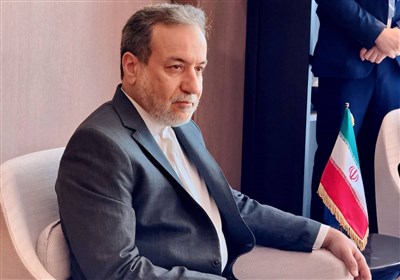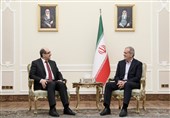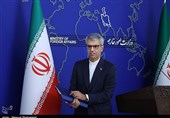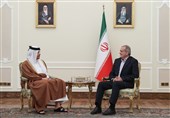World Tiring of US Belligerence: American Author
TEHRAN (Tasnim) – An American professor at the University of Pittsburgh School of Law said there are clear indications that the world is getting tired of US belligerence.
“It is clear that the world is tiring of US belligerence, and even US allies are less and less willing to play along with it. The US will inevitably find itself more isolated as it lashes out against the nations of the world,” Daniel Kovalik told Tasnim.
Daniel Kovalik teaches International Human Rights at the University of Pittsburgh School of Law, and is the author of “The Plot to Attack Iran”.
Following is the full text of the interview:
Tasnim: US President Donald Trump on Friday said he does not believe North Korean leader Kim Jong Un violated any pact with him by launching another round of projectiles. "He likes testing missiles," Trump told reporters as he departed the White House for the Group of Seven economic summit in France. North Korea continues to test missiles and Trump says we already have good ties with them. What is behind this soft tone?
Kovalik: It is curious, but it appears that Donald Trump has built up some sincere trust in Kim Jong Un. My own view is that this is a good thing. With the US more and more belligerent towards more countries, we should welcome this apparent rapprochement between two nuclear states. And, ultimately, this friendship might finally result in a final peace treaty between North and South Korea and an end of hostilities. Again, this would be a welcome development.
Tasnim: The US has decided to set up an international patrol mission to secure the Strait of Hormuz in the Persian Gulf, calling on its allies to join it. A number of countries, including Germany, France, and Japan, have turned down Washington’s request. It seems that the divide between the US and its close allies is growing. What do you think?
Kovalik: The US's allies never wanted an end to the JCPOA, which they were quite aware that Iran was complying with, and they certainly don't want a military conflict with Iran as they know it will be an incredibly costly one in terms of lives and treasure. It is clear that the world is tiring of US belligerence, and even US allies are less and less willing to play along with it. The US will inevitably find itself more isolated as it lashes out against the nations of the world.
Tasnim: According to a recent article published by the Washington Post, “Long-term trends show that China is catching up to the United States on just about every conceivable capability metric. Short-term trends show the European Union is a more potent regulatory power and the United States has become more isolated on questions of, say, aviation regulation”. At the same time, serious international relations scholars have argued that US hegemonic power is nearing its end. What are your thoughts on this?
Kovalik: Certainly, the US is desperately trying to maintain its hegemonic power in the world and to maintain the unipolar world, which existed after the collapse of the USSR. However, while I would certainly like to see an end to the US as the world's hegemon, I am not certain that it is very close to losing this position. The US dollar is still very strong, the US is a net exporter of fossil fuels, it still has the most powerful military on earth and its cultural influence is without rival. In light of this, one could view its hegemonic status as quite durable. My fear, however, is that the US is willing to destroy nations, and possibly the earth in which we live, to guarantee its continued dominance. That is, the US may indeed retain its hegemonic power, but at the cost of life as we know it. This is a quite frightening prospect.






